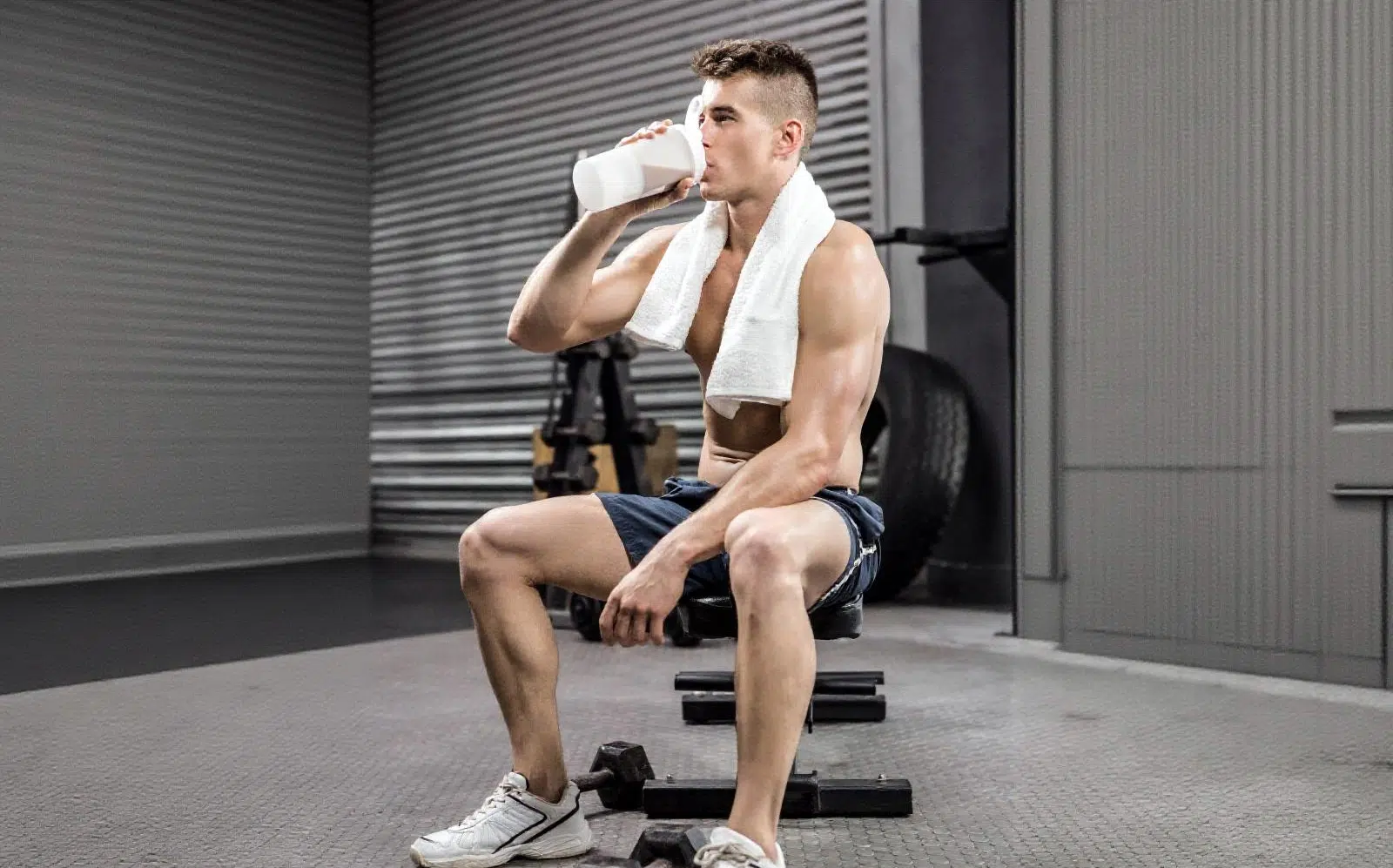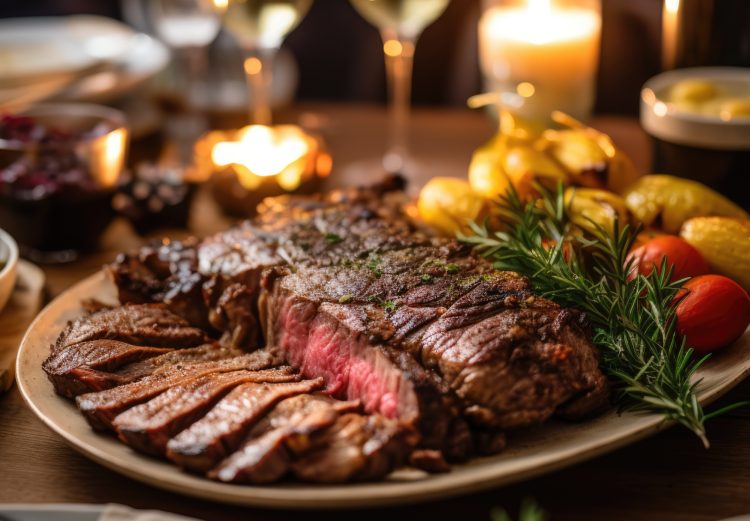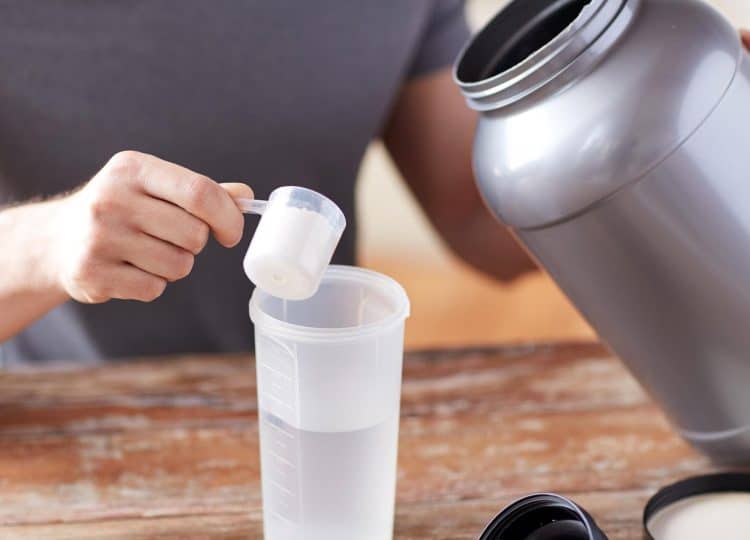Protein is one of the three macronutrients and is the building block of muscles. Your muscle tissues develop micro-tears while you are lifting weights in the gym. You must ensure that you are meeting your daily protein intake goals to build bigger and stronger muscles.
In my experience as a personal trainer, most people push themselves hard enough in the gym to promote muscle stimulation. However, they fail to achieve noticeable progress because of a poor diet.
If you look at the nutrition plans of these folks, you’ll find that they routinely hit their daily carb and fat goals. The problem lies with the protein intake.
Not only does this hinder their muscle-building ambitions, but it also impairs hormone production and enzyme function.
Meeting your daily protein requirements prevents muscle loss, improves recovery, and boosts immunity. The tricky part about protein intake is that every individual has unique needs, depending on factors like age, gender, genetics, daily activity levels, and fitness objectives.
In this article, I share four telltale signs that your body is crying out for more protein. We’ll also uncover strategies for bridging these gaps. Without further ado, here are the four ways you can assess your protein intake:
1. Muscle Recovery and Growth
Just like protein is the building block of muscles, amino acids make up proteins. When you consume protein after a workout, it is broken down into amino acids, which help repair the muscles in a process called muscle protein synthesis.
Here are a few signs to look out for:
DOMS
A lack of protein in the body can hamper the recovery process and increase the chances of delayed-onset muscle soreness (DOMS).
While it is not uncommon to experience DOMS after an intense workout, if you’re dealing with muscle soreness after each workout or if it lingers on for multiple days after a lifting session, it might be a sign that your body is lacking the essential nutrients for recovery.
Struggling To Build Muscle
You probably know people who are always complaining about their inability to build muscle, irrespective of how hard they train in the gym. Ask these folks about their daily routine intake, and they’ll look like a deer caught in headlights.
Increased Injury Frequency
Are you always nursing a pulled muscle or nagging joint pain? If you are nodding your head right now, there are chances that you are dealing with protein deficiencies. Protein plays a crucial role in keeping your connective tissues strong and resilient. A lack of proteins throws a wrench in this process.
Chronic Fatigue
Many of my new clients usually complain about workout fatigue that lasts throughout the day. When you assess the daily nutrition of these folks, you typically realize that they are nowhere near their daily protein intake.
Protein provides the building block for energy production. If you’re constantly feeling tired and exhausted, it might be time to reconsider your diet.
Fix This Protein Issue
Begin by determining your ideal daily protein intake, depending on your unique needs. One of the best and most convenient ways of doing this is to use this total daily energy expenditure (TDEE) calculator. It will give you your ideal calorie, protein, carb, and fat goals, depending on your current fitness levels and training objectives.
Nutrition experts recommend using a meal-tracking app like MyFitnessPal for a week to determine your average daily protein intake. Then, tally your current intake with the ideal goals. Use high-quality protein food sources to plug the gaps in your diet.
Coach Tip: Many people obsess about the ‘anabolic window,’ which involves eating a certain amount of protein within 30 to 60 minutes of a workout. However, recent research shows that your daily protein intake is more important than timing the protein intake around your workouts. (1)
Experts recommend spreading out your protein intake throughout the day to ensure a steady supply of amino acids to your muscles. Eggs, legumes, lean meats, Greek yogurt, and whey protein are some of the most high-quality protein sources that you can consume.
2. Satiety and Appetite Control
If you feel like your hunger is uncontrollable after a workout and you are constantly starving throughout the day, it might be a sign that you are not consuming enough protein.
Protein plays a crucial role in influencing hunger hormones like ghrelin and leptin. These hormones signal to your brain that you are full.
Insufficient protein intake can cause constant cravings, especially for processed and sugary foods. Protein can help maintain stable blood sugar levels, preventing energy spikes and crashes.
Also, many people complain about feeling hungry shortly after eating a meal. Cravings can also be caused by a lack of protein in the diet. Protein takes longer to digest than carbohydrates and fats, helping you feel full for longer. (2)
Many experts recommend that people aiming to lose weight increase the protein content in their diets. An adequate protein intake can help avoid late-night cravings, and you won’t find yourself raiding the fridge at midnight.
How To Use Protein To Manage Hunger
Use these nifty techniques to prime your metabolism and achieve your fitness objectives:
Include protein with every meal and snack
This is a must-do for everyone, irrespective of their fitness objectives. Make protein a part of every meal and snack. For instance, eat eggs for breakfast, chicken or fish for lunch, and tofu for dinner. Greek yogurt is an excellent option for an evening snack.
Choose high-protein snacks over processed options
Many people opt for processed foods like chips and cookies while they are starving at odd times during the day. Instead, you should opt for a handful of almonds, a hard-boiled egg, or a protein bar to soothe your tummy.
Prioritize protein sources that are also high in fiber
What you are about to read next will definitely level up your nutrition game.
Combining protein with high-fiber foods can help you feel fuller for longer. Foods like fruits, vegetables, and whole grains have a good amount of fiber that can slow down your digestion and enhance the feeling of satiety.
Coach Tip: A grilled chicken breast, a side of brown rice, and a generous serving of steamed vegetables is an excellent high-protein and fiber lunch idea.
3. Physical Performance and Energy Levels
Many people have no idea about this, but protein plays a crucial role in energy production. Think of protein as a slow-burning fuel source that keeps your body going for longer. This makes protein even more important for people who push themselves daily in the gym.
When your body runs out of its glycogen stores, it breaks down protein into amino acids and converts them into glucose for energy.
Understanding this point is very crucial for people who are aiming to build muscle. If you do not consume enough protein every day, you might enter the catabolic state during a workout and end up losing muscle tissue.
Signs of Protein Deficiency Affecting Performance
Are you confused and not sure about if you’re getting enough protein? Here are the signs you should look out for:
- Low energy and fatigue: You cannot always blame a low-carb diet for your depleted energy levels during a workout. A lack of protein can also be the culprit.
- Decreased endurance and stamina: If you struggle to maintain your usual pace or are unable to complete your sets, you should reevaluate your protein intake, as it can significantly impact your stamina.
- Poor exercise recovery: As explained above, this is a telltale sign of low protein intake.
- Reduced strength and power: A shortage of protein can lead to a decline in your overall strength and power output.
Your ideal protein intake will depend on your current fitness levels and training objectives, but experts recommend consuming between 1.2 to 2.2 grams of protein per kilogram of body weight to avoid deficiencies. (3)
4. Sleep Quality and Mood
I won’t lie — I love to sleep. It is one of the best parts of my day. And I was so pumped when I first discovered that protein can help improve sleep quality.
I’d go as far as to say that it was when my love affair with protein began.
Protein works behind the scenes to regulate key chemicals in your brain that impact your sleep, like tryptophan, serotonin, and melatonin. Tryptophan is the main one, as your body uses it to create serotonin and melatonin. (4)
On the other hand, serotonin helps you relax, and melatonin signals to your body that it’s time to call it a day.
When you are short on protein, your body struggles to produce enough of these sleep-regulating chemicals, which can impact your overall recovery.
If you are tossing and turning all night and finding it hard to fall asleep, it is also a sign that you need more protein in your diet. Plus, folks who wake up multiple times during the night and struggle to get back to sleep might also be lacking protein.
Do you feel unrested after a whole night’s sleep? You got it right. You might be short on protein in your diet as well.
Sleep can also regulate dopamine production, which is often associated with feelings of motivation, reward, and pleasure. This, combined with serotonin, can help regulate mood, appetite, and even pain perception.
Signs of Mood Disturbances Related to Protein Deficiency:
- Increased irritability and mood swings
- Feelings of anxiety or depression
- Difficulty concentrating or focusing
- Low motivation
Other Signs and Considerations of Protein Deficiency
It doesn’t end here; protein deficiency can also hamper your hair, skin, and nail health and lower your immunity.
Research shows that feelings of impaired cognitive function can also be linked to a lack of protein in the diet, as it inhibits neurotransmitter production. (5)
Pay close attention to how your body responds to a change in protein intake. Monitor your progress and adjust your intake accordingly.
Remember, avoid adopting vanilla diet programs that you might find online. Each individual has varying needs and responds to different diets uniquely. Seek a professional’s help to design a personalized diet. Monitor your progress and make the necessary adjustments to achieve the physique of your dreams.
Conclusion
Most protein deficiencies go undiagnosed, and the sad part is that they are the reason behind a range of health issues like poor muscle recovery and growth, constant cravings, declining physical performance, and poor sleep.
Monitoring your overall health closely is one of the most effective ways to check for nutrition deficiencies. Determine your ideal nutrient needs using this calculator and adopt the strategies laid out in this article to fix protein deficiencies.
If you have any questions about protein deficiencies and how you can fix them, post them in the comments below, and I’ll be happy to help!
References:
- Aragon AA, Schoenfeld BJ. Nutrient timing revisited: is there a post-exercise anabolic window? J Int Soc Sports Nutr. 2013 Jan 29;10(1):5. doi: 10.1186/1550-2783-10-5. PMID: 23360586; PMCID: PMC3577439.
- Paddon-Jones, D., Westman, E., Mattes, R. D., Wolfe, R. R., Astrup, A., & Westerterp-Plantenga, M. (2008). Protein, weight management, and satiety. The American journal of clinical nutrition, 87(5), 1558S–1561S. https://doi.org/10.1093/ajcn/87.5.1558S
- Wu G. (2016). Dietary protein intake and human health. Food & function, 7(3), 1251–1265. https://doi.org/10.1039/c5fo01530h
- Paredes SD, Marchena AM, Bejarano I, Espino J, Barriga C, Rial RV, Reiter RJ, Rodríguez AB. Melatonin and tryptophan affect the activity-rest rhythm, core and peripheral temperatures, and interleukin levels in the ringdove: changes with age. J Gerontol A Biol Sci Med Sci. 2009 Mar;64(3):340-50. doi: 10.1093/gerona/gln054. Epub 2009 Feb 10. PMID: 19211547; PMCID: PMC2654999.
- Journel M, Chaumontet C, Darcel N, Fromentin G, Tomé D. Brain responses to high-protein diets. Adv Nutr. 2012 May 1;3(3):322-9. doi: 10.3945/an.112.002071. PMID: 22585905; PMCID: PMC3649463.
Tip: If you're signed in to Google, tap Follow.














